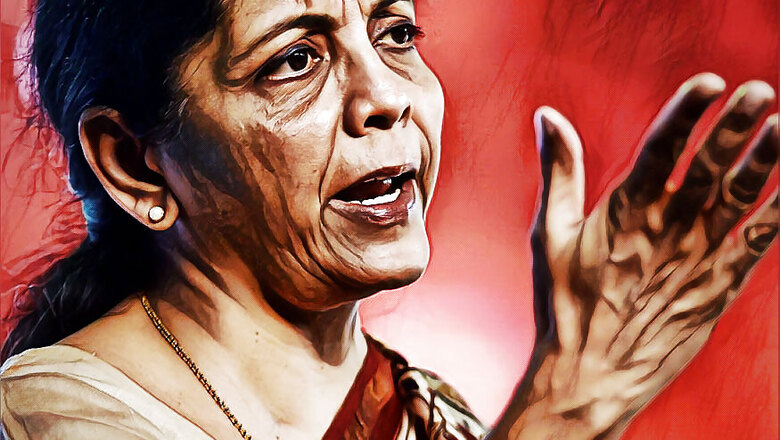
views
The Doklam incident marks a watershed moment in recent Indian politico-military policy. Making a break from the normal in assertively countering China’s aggressive idea of a unipolar Asia, New Delhi’s New Normal will lie in deterring Beijing along a vast disputed land boundary and the Indian Ocean.
For an India that has had to make do with one part-time Defence Minister and another with his heart set on Goan Chief Ministership — Nirmala Sitharaman’s appointment comes at a crucial juncture.
Sitharaman has created a splash in the news as India’s second woman defence minister after Indira Gandhi, who held the charge of the ministry during her tenures as Prime Minister. In another first, the apex Cabinet Committee on Security (CCS) will, for the first time, have two women members – Sitharaman and External Affairs Minister Sushma Swaraj.
The new defence minister will be expected to deliver on long-pending structural reforms and equipment modernisation efforts in a short 20-month tenure.
One of Defence Minister Arun Jaitley’s last decisions has been the approval of 65 politically non-contentious recommendations of the 99 recommendations that were sent to the government by the Lt Gen DB Shekatkar Committee for enhancing combat capability and rebalancing defence expenditure of the armed forces.
The pending recommendations tackling big ticket reforms in the higher defence structure such as the appointment of a Chief of Defence Staff and the constitution of integrated theatre commands which are key to making substantive progress towards force integration among the three services.
These reforms which are expected to maximise warfighting capabilities and reduce budgetary inefficiencies will fall on Sitharaman for delivery. The lack of progress so far reflects the determination of bureaucratic interests in the individual service branches to preserve their own interests, rather than maximise combat performance and efficiency, a tall order for any appointee to tackle.
The threat perception of a two-front war which stems from a directive from the Defence Minister which has for years driven Indian military planning and acquisitions also requires a revisit. Sitharaman will need to oversee Indian services adopting a more capability-based approach versus the previous threat-based approach.
However, there is little evidence to suggest that any of the three services have taken any steps in that direction. The Army is still in the process of raising the Mountain Strike Corps to further add manpower to its standing strength of 1.18 million men. The Indian Air Force continues to press for 42-45 fighter squadrons to deter a two-front war while the Indian Navy wants to eventually operate 200 ships, including three aircraft carrier groups.
One of the key barometers that Sitharaman will be judged on at the end of the 20-month tenure will be the implementation of “Make in India’ in defence. Prime Minister Narendra Modi’s recurring declarations on making India self-reliant in defence manufacturing is yet to see any significant results. So far Foreign Direct Investment in defence between July 2016 to January 2017, was worth a measly ₹0.61 lakh.
The policy for Strategic Partnerships in defence for fighter aircraft, submarines, helicopters and armoured vehicles, has been a non-starter. Key impediments include restrictions of a 49 percent stake for foreign Original Equipment Manufacturers (OEM) in any such partnership with Indian companies for the projects.
Sitharaman’s previous stint in the Commerce & Industry Ministry is expected to inculcate an investment friendly environment for foreign OEM’s with a great deal of expectation in increasing the caps for investment and ownership.
PM Modi’s choice of Sitharaman to be the next Defence Minister, will mean no big changes in current Indian foreign and military policy. Both Arun Jaitley and Manohar Parrikar struggled to leave a distinctive mark at the South block during their tenure.
Like her predecessors, Nirmala Sitharaman will enter the South block with limited knowledge of how unwieldy military bureaucracies function and the expectation to establish a force with the capabilities needed to meet India’s challenges in the coming years will weigh heavy on her limited tenure.
(Pushan Das is a Program Coordinator at the Observer Research Foundation in New Delhi)




















Comments
0 comment